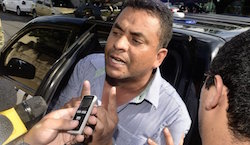The arrest of a Paraguay politician in connection with a money laundering investigation has raised hopes the country is working towards reducing rampant impunity by holding powerful figures accountable.
On May 22, agents from Paraguay’s anti-drug agency (SENAD) arrested Carlos Ruben Sanchez, alias “Chicharõ,” a congressional alternate under investigation for money laundering, reported ABC Color.
Chicharõ, who was taken into custody near a shopping center in Asuncion, serves as a Colorado Party congressional alternate for the border province of Amambay. At the time of his arrest, he was in the company of Congressman Marcial Lezcano.
According to EFE, SENAD has audio evidence linking Chicharõ and Lezcano — along with several other politicians — to drug trafficking.
Chicharõ is currently being held in preventative detention along with his brother Ardonio Sanchez, who is also allegedly involved in money laundering, while investigations are underway.
InSight Crime Analysis
Chicharõ’s arrest, and recently opened investigations into his financial dealings, are the latest in a series of brushes with the law.
In 2010, Chicharõ was convicted of drug trafficking and money laundering in Brazil, and sentenced to four years in prison. However, he fled to Paraguay in 2011, where he successfully ran for office, and was arrested in 2013. After serving a short stint in a Paraguayan prison, Chicharõ was released in September 2014.
SEE ALSO: Coverage of Elites and Organized Crime
In July 2014, a drug plane linked to Chicharõ crash landed on a road, killing two women and a child. However, investigations into the case have moved slowly, producing few results.

The drug plane linked to Chicharõ that crashed and killed three people in 2014
Previous investigations have also suggested that Chicharõ works for Luiz Carlos Da Rocha, alias “Cabeça Branca,” a Brazilian drug trafficker. Indeed, Chicharõ appears to be part of a new drug trafficking dynamic in Latin America’s Southern Cone region, in which criminal groups are increasingly focused on supplying domestic drug markets rather than moving cocaine to the United States.
However, Paraguay — which has been at the heart of this shift in drug trafficking trends — suffers from rampant impunity and corruption, and in the past its justice system has demonstrated an inability to hold drug traffickers accountable.
While Chicharõ’s arrest is a step in the right direction, the true test is whether Paraguayan authorities can complete the investigation and give him a fair and transparent trial free from external influences.

